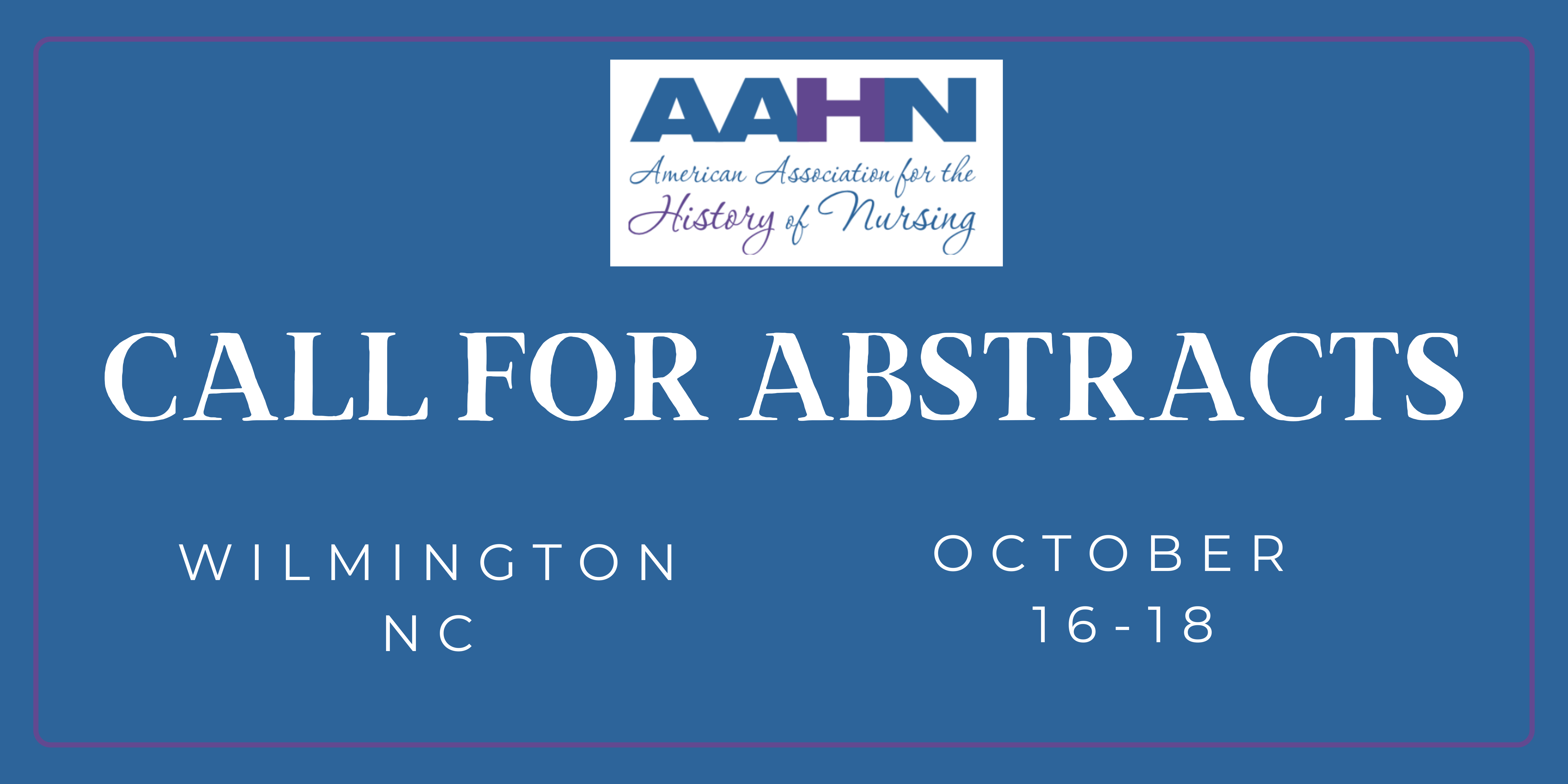- Home
- About AAHN
- Membership
- Research & Resources
- Publications
- Conference
- Members Only
- Contact Us
|
2025 Call for Abstracts Significance of Race and Place: Historical Examination of Equity & Belonging in Nursing & HealthcareOctober 16-18, 2025 The American Association for the History of Nursing (AAHN) invites abstract submissions for the 42nd Annual Nursing and Healthcare History conference, to be held in Wilmington, NC from October 16-18, 2025. The AAHN is offering three separate abstract tracks: (1) original research; (2) teaching nursing and healthcare history; or (3) thematic proposals. Submissions should match the criteria in one of the three abstract tracks and, where applicable, must indicate the preferred presentation option, either poster, podium, or panel presentation. The conference call for abstracts deadline extended until Monday, March 17, 2025. Presenters will be notified via email of their acceptance status by Friday, April 4, 2025. Wilmington, NC, the location of our conference, has a complex racial history. The AAHN encourages the submission of research & educational innovations that examine the historical significance of race and/or place for nursing or healthcare practice, education, and/or policy. Track Descriptions Track 1: Original Research As the premier forum for researchers, faculty, and enthusiasts of nursing history to share their scholarship, AAHN welcomes abstracts of original, completed work utilizing historical methodology. The research can address events, issues, and topics in any area of nursing and healthcare history, from any region or time period, as well as those that engage related fields such as women’s labor, technology, economic history, and race and gender studies. Track 2: Teaching Nursing and Healthcare History Building on the success of the education-focused pre-conference session at the 40th Annual conference, AAHN welcomes abstract submissions describing completed work in teaching nursing or healthcare history. Submissions focused on education can describe an entire course, a module or unit, an individual class or seminar, or a specific teaching and learning activity but must include information on planning, implementation, and evaluation. Track 3: Thematic Proposals AAHN also welcomes abstracts for thematic proposals. These presentations are intended not for original scholarship, but to address topics of broad interest such as new themes in historiography, teaching, research methods, and advocacy. Though limited to 60 minutes, presenters may utilize a flexible format and structure. They should, however, include several speakers for a more multidimensional perspective. Guidelines for Submission Abstracts must arrive on or before February 28, 2025, and must be submitted via the Oxford Abstracts submission portal: Oxford Abstracts Submission Portal. Presenters will be required to select an abstract track and indicate their desired presentation format, either poster, podium, or panel. Abstracts should be 500 words or less, exclusive of footnoted references and learning objectives. Abstract content must be blinded; all references to the organizations and/or authors by name must be omitted from the title and body of the abstract to ensure a fair, unbiased review process. Failure to comply with this blinded process will result in automatic abstract disqualification. A complete submission will include all of the following elements: Abstract Body, References, and Learning Objectives. Abstract Body: 500 words max; each section of the abstract should be clearly identified using the 4 following headers:
References: Any footnoted references from the abstract text should be cited using the Chicago Manual of Style, 18th Edition. References are a separate section and are not considered part of the abstract word count. Learning Objectives: Please state a minimum of 1 and a maximum of 3 learning objectives that you expect participants to meet by attending your session. Learning objectives utilize an action verb and must be congruent with the abstract text. New knowledge must be gained to qualify for continuing education (CE) contact hours. Submit Your Abstract |

